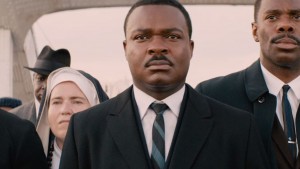RICHARD’S “CANADA AM” REVIEWS FOR JANUARY 9 WITH BEVERLY THOMSON.
 “Canada AM” film critic Richard Crouse reviews “Selma” and “Taken 3.”
“Canada AM” film critic Richard Crouse reviews “Selma” and “Taken 3.”
Watch the whole thing HERE!
 “Canada AM” film critic Richard Crouse reviews “Selma” and “Taken 3.”
“Canada AM” film critic Richard Crouse reviews “Selma” and “Taken 3.”
Watch the whole thing HERE!
 “Selma” is a snapshot of a time. Instead of trying to cover the width and breadth of Martin Luther King’s life and accomplishments, director Ava DuVernay hones the story down to one seminal event, Dr. King Jr.’s march from Selma to Montgomery, Alabama. It’s an effective and uncluttered approach that brings one of the biggest events of the civil rights movement into sharp focus.
“Selma” is a snapshot of a time. Instead of trying to cover the width and breadth of Martin Luther King’s life and accomplishments, director Ava DuVernay hones the story down to one seminal event, Dr. King Jr.’s march from Selma to Montgomery, Alabama. It’s an effective and uncluttered approach that brings one of the biggest events of the civil rights movement into sharp focus.
The heart and soul of the film is Annie Lee Cooper (Oprah Winfrey), a Selma nurse who tries to register for the vote. The legal right is hers, but this is 1965 and a racist county clerk asks her a series of questions to make sure she is qualified to vote. After she recites the Preamble to the U.S. Constitution he asks her how many county judges are in the area. “Sixty-seven,” she replies confidently. “Name them,” he says, stamping Denied on her application.
Cooper is not a main character. She pops up now and again, but the power of this scene informs the rest of the movie. She is an average woman who stood up for herself and neighbors, and with the help of Martin Luther King Jr. (David Oyelowo) and a dedicated group of civil rights workers broke down barriers in a state where the governor (Tim Roth) is firmly in favor of segregation.
“Selma” is a powerful movie not just because of what it does show but because of what it doesn’t show. There is no “I Have a Dream” speech or Bus Boycotts to be seen. Instead the script focuses on the salient details of the Selma marches which leaves time to humanize and get under the skin of the Dr. King and several of the other characters.
The movie is helmed by a gobsmackingly good performance from Oyelowo as King. He’s righteous, fiery and but plays King like a man, not an emblem. It is career making work but he’s not alone in handing in powerful work.
Winfrey’s big scene is a showstopper, a quietly played moment of frustration, hurt and anger, all of which flash across her face in a nicely underplayed role. For me, however, the movie’s most effective scene happens between King and an elderly man, Cager Lee (Henry G. Sanders), who has lost his son in a burst of race related violence. The men meet in the morgue and say what you might expect people in that situation to say to one another, but the look of Sanders’s face, in the presence of the civil rights leader, is heartbreaking and hopeful simultaneously.
“Selma” is a historical document, but so alive and timely, it is essential viewing almost fifty years after King’s assassination.